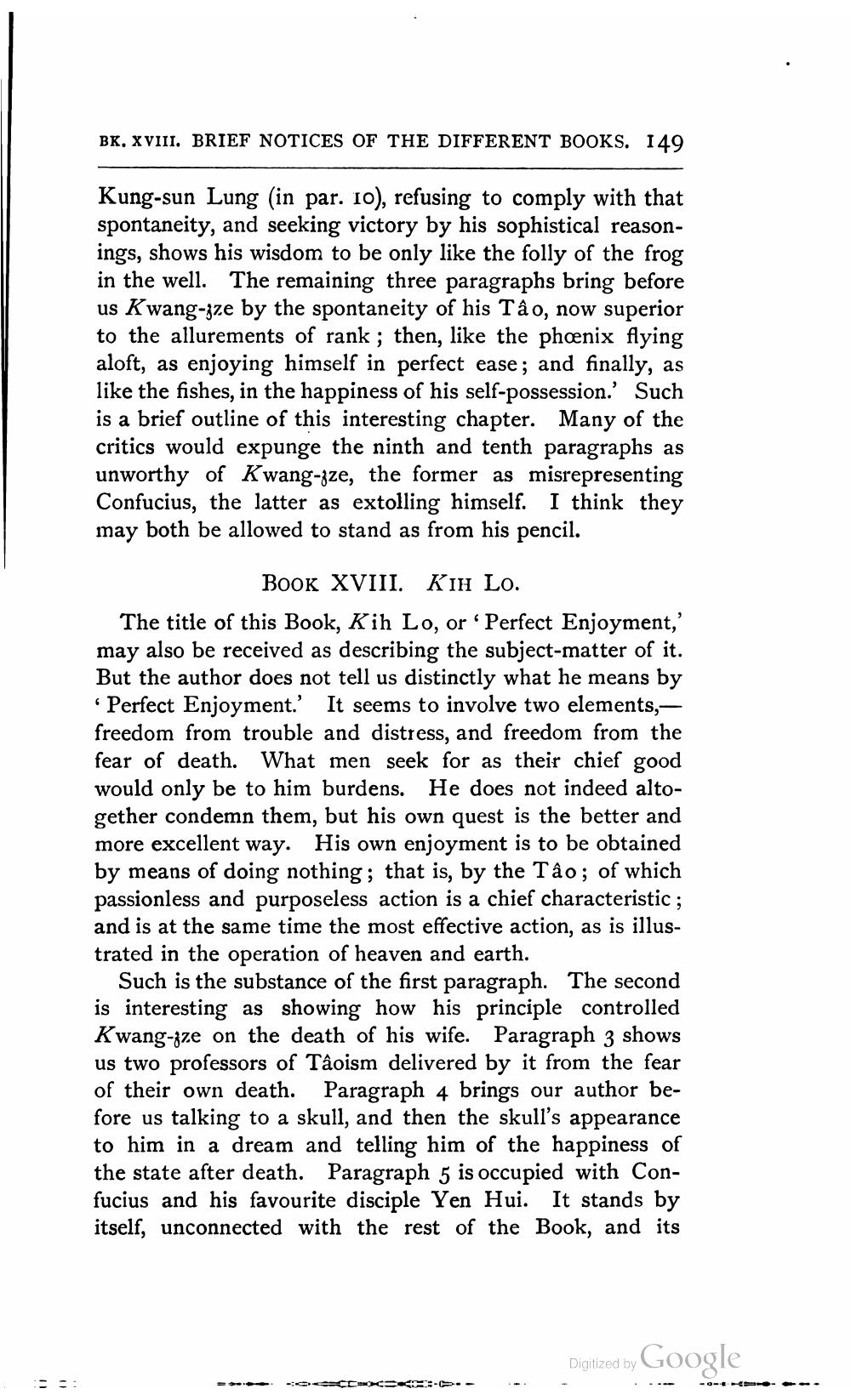________________
BK. XVIII. BRIEF NOTICES OF THE DIFFERENT BOOKS. 149
Kung-sun Lung (in par. 10), refusing to comply with that spontaneity, and seeking victory by his sophistical reasonings, shows his wisdom to be only like the folly of the frog in the well. The remaining three paragraphs bring before us Kwang-zze by the spontaneity of his Tâo, now superior to the allurements of rank; then, like the phenix flying aloft, as enjoying himself in perfect ease; and finally, as like the fishes, in the happiness of his self-possession. Such is a brief outline of this interesting chapter. Many of the critics would expunge the ninth and tenth paragraphs as unworthy of Kwang-zze, the former as misrepresenting Confucius, the latter as extolling himself. I think they may both be allowed to stand as from his pencil.
BOOK XVIII. Kim Lo. The title of this Book, Kih Lo, or 'Perfect Enjoyment,' may also be received as describing the subject-matter of it. But the author does not tell us distinctly what he means by • Perfect Enjoyment.' It seems to involve two elements, freedom from trouble and distress, and freedom from the fear of death. What men seek for as their chief good would only be to him burdens. He does not indeed altogether condemn them, but his own quest is the better and more excellent way. His own enjoyment is to be obtained by means of doing nothing; that is, by the Tâo; of which passionless and purposeless action is a chief characteristic; and is at the same time the most effective action, as is illustrated in the operation of heaven and earth.
Such is the substance of the first paragraph. The second is interesting as showing how his principle controlled Kwang-zze on the death of his wife. Paragraph 3 shows us two professors of Taoism delivered by it from the fear of their own death. Paragraph 4 brings our author before us talking to a skull, and then the skull's appearance to him in a dream and telling him of the happiness of the state after death. Paragraph 5 is occupied with Confucius and his favourite disciple Yen Hui. It stands by itself, unconnected with the rest of the Book, and its
Digitized by
Digitized by Google




